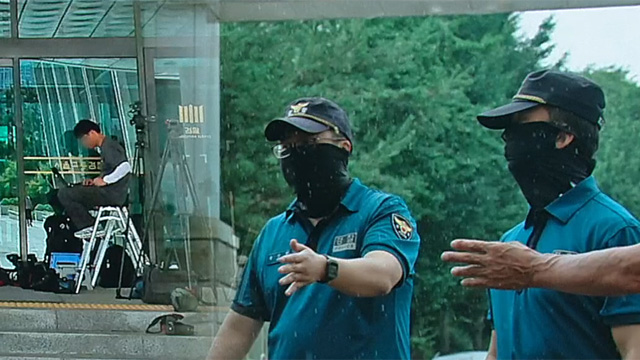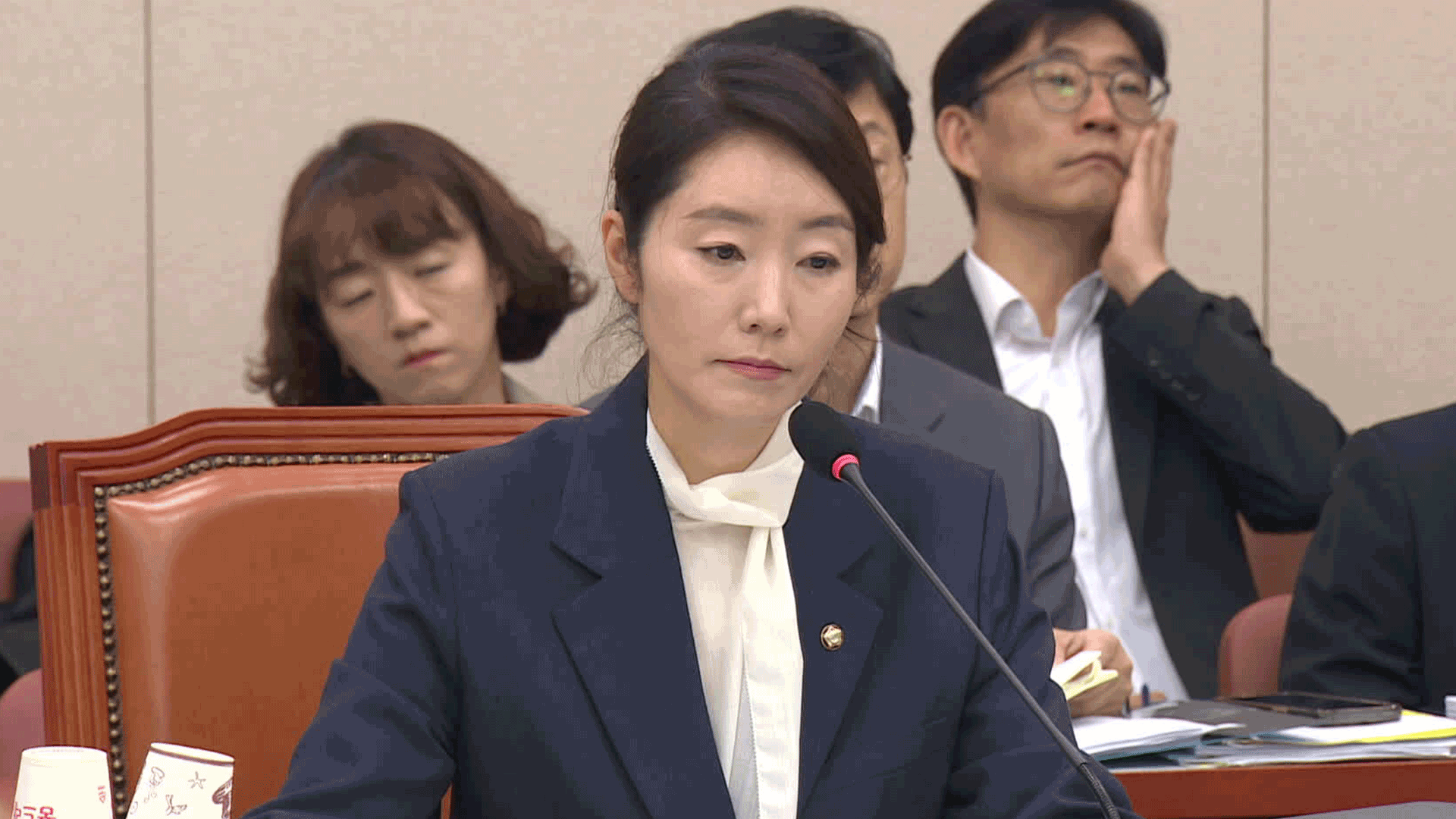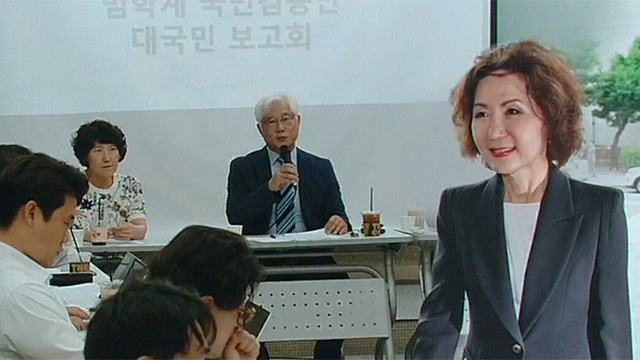Challenges in balancing youth employment and retirement age extension
입력 2025.01.02 (23:58)
읽어주기 기능은 크롬기반의
브라우저에서만 사용하실 수 있습니다.
[Anchor]
In our ongoing series addressing the challenges of an ultra-aged society, today (1.2) we will examine the issue of 'extending the retirement age.'
While there is a growing public opinion that the current retirement age of 60 should be extended, there are also significant counterarguments that this could reduce job opportunities for young people.
How can we reach a social consensus on this issue? Reporter Kim Min-hyuk has the story.
[Report]
At a senior welfare center, preparations for lunch boxes are in full swing from early morning.
These lunch boxes are to be delivered to elderly individuals living alone in the area.
["It fits perfectly!"]
Despite being in his eighties, Mr. Lee Tae-ho delivers lunch boxes without feeling tired.
He has not stopped working for over a decade since his retirement.
[Lee Tae-ho in his 80s/Jongno-gu, Seoul: "A little bit of money helps with living expenses. I can also give my grandchildren some pocket money."]
The elderly working like this are no longer a strange sight in an ultra-aged society.
However, the legal retirement age in our country is 60, and since the national pension can only be received starting at 63, an 'income vacuum' of three years is created.
This is why there are calls to extend the retirement age.
[Hong Jong-wan in his 80s/Dobong-gu, Seoul: "Times have changed. People are still capable of working at 65. So I think we should adjust the retirement age a bit...."]
There are concerns that extending the retirement age will increase the burden on companies and reduce job opportunities for young people.
In fact, research has shown that for every additional person eligible for retirement, youth hiring decreases by 0.2 people.
[Yoon Hee-sung/University student: "I agree with re-employing retired individuals. However, I think it is important for companies to balance between young and elderly workers."]
There are also counterarguments that extending the retirement age and hiring young people are not necessarily mutually exclusive.
It is suggested that jobs should be developed that meet the needs of both the elderly and the youth.
[Lee Bong-joo/Professor, Department of Social Welfare, Seoul National University: "It is true that there is a significant difference in the distribution of roles and functions between the youth and the elderly. By devising a wage system based on roles or functions, we can actually reduce the burden on companies...."]
The National Human Rights Commission has recommended extending the retirement age to the Prime Minister, but the discussions involving the government, labor and management have been halted due to the emergency martial law situation.
This is KBS News, Kim Min-hyuk.
In our ongoing series addressing the challenges of an ultra-aged society, today (1.2) we will examine the issue of 'extending the retirement age.'
While there is a growing public opinion that the current retirement age of 60 should be extended, there are also significant counterarguments that this could reduce job opportunities for young people.
How can we reach a social consensus on this issue? Reporter Kim Min-hyuk has the story.
[Report]
At a senior welfare center, preparations for lunch boxes are in full swing from early morning.
These lunch boxes are to be delivered to elderly individuals living alone in the area.
["It fits perfectly!"]
Despite being in his eighties, Mr. Lee Tae-ho delivers lunch boxes without feeling tired.
He has not stopped working for over a decade since his retirement.
[Lee Tae-ho in his 80s/Jongno-gu, Seoul: "A little bit of money helps with living expenses. I can also give my grandchildren some pocket money."]
The elderly working like this are no longer a strange sight in an ultra-aged society.
However, the legal retirement age in our country is 60, and since the national pension can only be received starting at 63, an 'income vacuum' of three years is created.
This is why there are calls to extend the retirement age.
[Hong Jong-wan in his 80s/Dobong-gu, Seoul: "Times have changed. People are still capable of working at 65. So I think we should adjust the retirement age a bit...."]
There are concerns that extending the retirement age will increase the burden on companies and reduce job opportunities for young people.
In fact, research has shown that for every additional person eligible for retirement, youth hiring decreases by 0.2 people.
[Yoon Hee-sung/University student: "I agree with re-employing retired individuals. However, I think it is important for companies to balance between young and elderly workers."]
There are also counterarguments that extending the retirement age and hiring young people are not necessarily mutually exclusive.
It is suggested that jobs should be developed that meet the needs of both the elderly and the youth.
[Lee Bong-joo/Professor, Department of Social Welfare, Seoul National University: "It is true that there is a significant difference in the distribution of roles and functions between the youth and the elderly. By devising a wage system based on roles or functions, we can actually reduce the burden on companies...."]
The National Human Rights Commission has recommended extending the retirement age to the Prime Minister, but the discussions involving the government, labor and management have been halted due to the emergency martial law situation.
This is KBS News, Kim Min-hyuk.
■ 제보하기
▷ 카카오톡 : 'KBS제보' 검색, 채널 추가
▷ 전화 : 02-781-1234, 4444
▷ 이메일 : kbs1234@kbs.co.kr
▷ 유튜브, 네이버, 카카오에서도 KBS뉴스를 구독해주세요!
- Challenges in balancing youth employment and retirement age extension
-
- 입력 2025-01-02 23:58:24

[Anchor]
In our ongoing series addressing the challenges of an ultra-aged society, today (1.2) we will examine the issue of 'extending the retirement age.'
While there is a growing public opinion that the current retirement age of 60 should be extended, there are also significant counterarguments that this could reduce job opportunities for young people.
How can we reach a social consensus on this issue? Reporter Kim Min-hyuk has the story.
[Report]
At a senior welfare center, preparations for lunch boxes are in full swing from early morning.
These lunch boxes are to be delivered to elderly individuals living alone in the area.
["It fits perfectly!"]
Despite being in his eighties, Mr. Lee Tae-ho delivers lunch boxes without feeling tired.
He has not stopped working for over a decade since his retirement.
[Lee Tae-ho in his 80s/Jongno-gu, Seoul: "A little bit of money helps with living expenses. I can also give my grandchildren some pocket money."]
The elderly working like this are no longer a strange sight in an ultra-aged society.
However, the legal retirement age in our country is 60, and since the national pension can only be received starting at 63, an 'income vacuum' of three years is created.
This is why there are calls to extend the retirement age.
[Hong Jong-wan in his 80s/Dobong-gu, Seoul: "Times have changed. People are still capable of working at 65. So I think we should adjust the retirement age a bit...."]
There are concerns that extending the retirement age will increase the burden on companies and reduce job opportunities for young people.
In fact, research has shown that for every additional person eligible for retirement, youth hiring decreases by 0.2 people.
[Yoon Hee-sung/University student: "I agree with re-employing retired individuals. However, I think it is important for companies to balance between young and elderly workers."]
There are also counterarguments that extending the retirement age and hiring young people are not necessarily mutually exclusive.
It is suggested that jobs should be developed that meet the needs of both the elderly and the youth.
[Lee Bong-joo/Professor, Department of Social Welfare, Seoul National University: "It is true that there is a significant difference in the distribution of roles and functions between the youth and the elderly. By devising a wage system based on roles or functions, we can actually reduce the burden on companies...."]
The National Human Rights Commission has recommended extending the retirement age to the Prime Minister, but the discussions involving the government, labor and management have been halted due to the emergency martial law situation.
This is KBS News, Kim Min-hyuk.
In our ongoing series addressing the challenges of an ultra-aged society, today (1.2) we will examine the issue of 'extending the retirement age.'
While there is a growing public opinion that the current retirement age of 60 should be extended, there are also significant counterarguments that this could reduce job opportunities for young people.
How can we reach a social consensus on this issue? Reporter Kim Min-hyuk has the story.
[Report]
At a senior welfare center, preparations for lunch boxes are in full swing from early morning.
These lunch boxes are to be delivered to elderly individuals living alone in the area.
["It fits perfectly!"]
Despite being in his eighties, Mr. Lee Tae-ho delivers lunch boxes without feeling tired.
He has not stopped working for over a decade since his retirement.
[Lee Tae-ho in his 80s/Jongno-gu, Seoul: "A little bit of money helps with living expenses. I can also give my grandchildren some pocket money."]
The elderly working like this are no longer a strange sight in an ultra-aged society.
However, the legal retirement age in our country is 60, and since the national pension can only be received starting at 63, an 'income vacuum' of three years is created.
This is why there are calls to extend the retirement age.
[Hong Jong-wan in his 80s/Dobong-gu, Seoul: "Times have changed. People are still capable of working at 65. So I think we should adjust the retirement age a bit...."]
There are concerns that extending the retirement age will increase the burden on companies and reduce job opportunities for young people.
In fact, research has shown that for every additional person eligible for retirement, youth hiring decreases by 0.2 people.
[Yoon Hee-sung/University student: "I agree with re-employing retired individuals. However, I think it is important for companies to balance between young and elderly workers."]
There are also counterarguments that extending the retirement age and hiring young people are not necessarily mutually exclusive.
It is suggested that jobs should be developed that meet the needs of both the elderly and the youth.
[Lee Bong-joo/Professor, Department of Social Welfare, Seoul National University: "It is true that there is a significant difference in the distribution of roles and functions between the youth and the elderly. By devising a wage system based on roles or functions, we can actually reduce the burden on companies...."]
The National Human Rights Commission has recommended extending the retirement age to the Prime Minister, but the discussions involving the government, labor and management have been halted due to the emergency martial law situation.
This is KBS News, Kim Min-hyuk.
-
-

김민혁 기자 hyuk@kbs.co.kr
김민혁 기자의 기사 모음
-
이 기사가 좋으셨다면
-
좋아요
0
-
응원해요
0
-
후속 원해요
0










![[단독] “윤석열·김용현 등 공모해 군사상 이익 해쳐”<br>…외환죄 대신 일반이적죄 적용](/data/layer/904/2025/07/20250714_3VTJV3.jpg)




이 기사에 대한 의견을 남겨주세요.